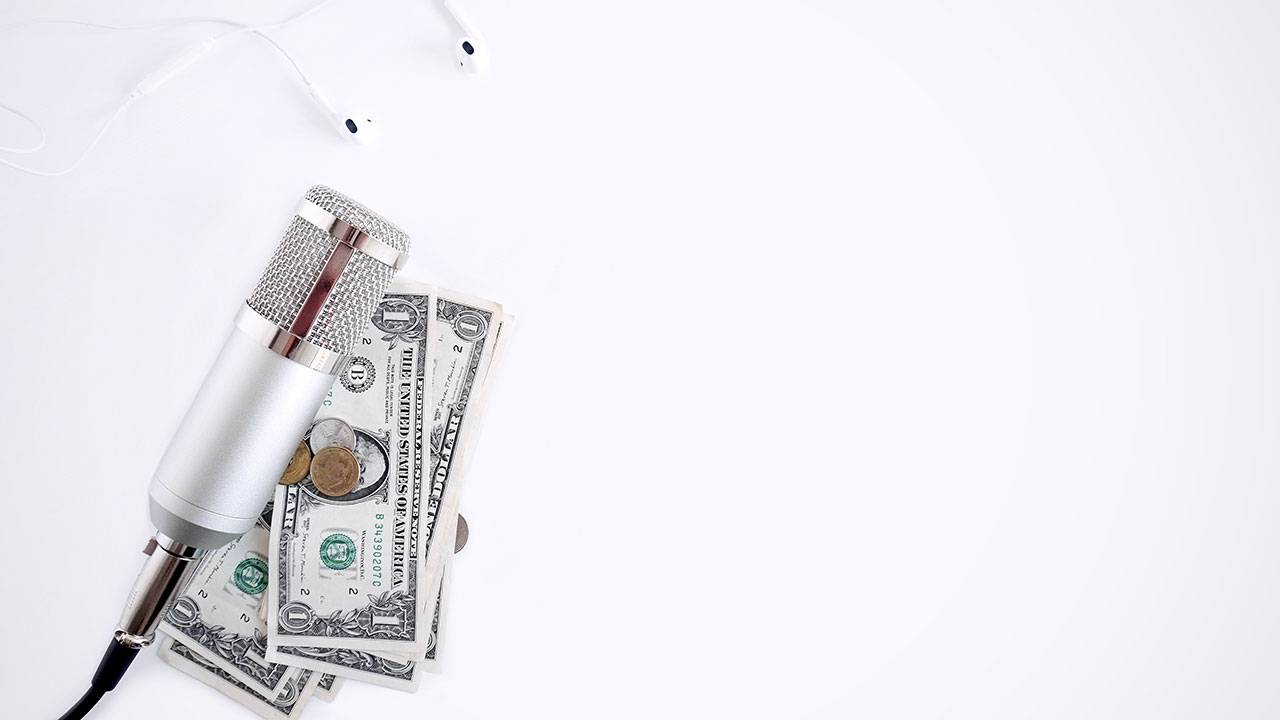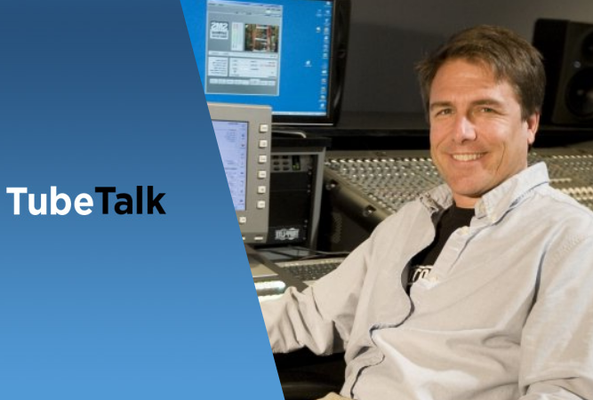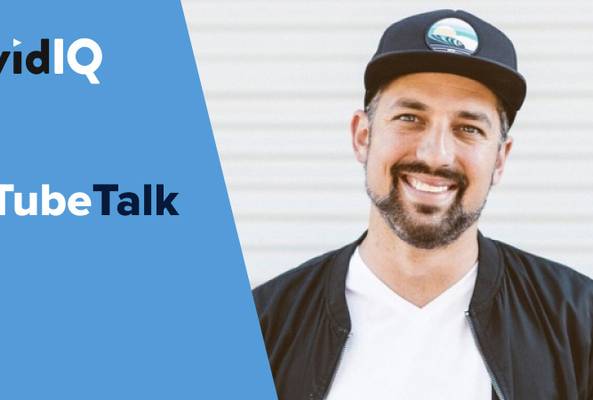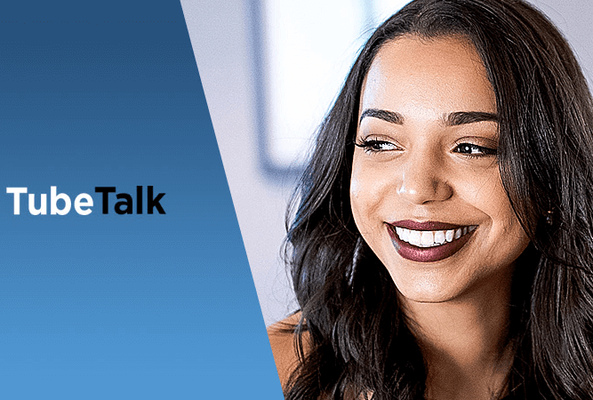In addition to being an avid movie and gaming enthusiast, Uttaran Samaddar is an experienced writer who has lent his creativity and unique perspective to various publications. He loves hearing and telling stories.
How to Monetize a YouTube Podcast: Brand Deals and Sponsorships
When you think of making big money on YouTube, podcasts probably don't come to mind — especially now that many creators are starting their own shows.
But with the way things are going, why wouldn’t they? The format allows any and every niche to have its own space, and that's rare!
The hard part, however, is building up consistent views if you’re just starting out. After all, that’s the best way to make a living from YouTube ads.
But what if there was a better way to monetize your podcast, and not just rely on advertising revenue?
Read More: Everything You Need to Know About Starting a YouTube Podcast

For example, have you noticed that some podcast hosts are reading advertisements aloud instead of sticking to YouTube's automated ones? Sometimes these ads come from small local businesses that aren't using Google ads to get noticed. They get more business by paying influencers to talk about their products and services, and these agreements are called brand deals (or sponsorships).
So, how can you hop on the sponsorship wave? Keep reading to learn all about it, and earn a living from your YouTube podcast!
Understand the Basics: The Sponsor's Wishlist
According to this article, 62% of U.S. consumers listen to podcasts, and that number has risen over the last 8 years. But sponsors aren't looking to advertise to just anyone. They want to support podcasts that reach their customers and have thousands of engaged listeners. So, certain markers of success will give you the edge when it comes to landing sponsorships for your podcast. Here's what brands are looking for.

1. The Right Audience for Their Product
The specifics of who is listening to a podcast — age brackets, geographical locations, and overall interests — can help sponsors determine if your audience mirrors their target market.
Now, we know what you’re thinking: How can I meet these requirements if I'm just starting out? And, we hear ya! But it's important to create a podcast you're passionate about and let the sponsors decide if you're the right fit. After all, you can't change the basis of your show every week to try and land a deal from every brand. Stick to one niche and partner with companies in that industry.
2. Lots of Unique Listeners
Sponsors are on the lookout for channels with a healthy subscriber base and plenty of listeners/viewers. After all, they're investing in your reach and betting on your ability to amplify their message. So, more than anything, you'll want to choose a topic that:
- Aligns with your interest
- Is popular (true crime, comedy, news, etc.)
3. High Listener Engagement
It's easy to get swept up in listens and views, but engagement is more important than either of those metrics. Just think about it: If a brand is looking for sales (and not just exposure), it has to target communities that are motivated to buy. So, a podcast channel with a lively comment section, a flurry of likes, and thousands of shares will catch their attention!
4. Lengthy Audience Retention
On YouTube, audience retention refers to how long viewers (or listeners) consume a video on average. And it's a big deal to podcast sponsors. If an episode is 60 minutes long, but an advertisement appears at the 20-minute mark, that means listeners have to consume 33% of the show to even realize a brand was mentioned. This means the show itself has to be engaging, especially if you want to land more brand deals.
Building a Media Kit: Your Track Record of Triumphs
On YouTube, your past successes are the best predictor of future triumphs. So, build a media kit that proves you can create value for sponsors!
Read More: How to Make a Stunning Influencer Media Kit for Brand Deals
A media kit is simply a document that details everything we mentioned above: the audience demographics of your podcast and important details about your listenership.

Finding Brands to Add to Your Media Kit
Begin with smaller, local businesses or brands that resonate with your content's theme. These initial partnerships are stepping stones, providing you with the experience and credibility to attract larger, more lucrative sponsorships. Document each collaboration's success, highlighting how you've met or exceeded the sponsor's expectations. This portfolio becomes your testament to future sponsors, showcasing your ability to deliver results and drive engagement.
How Your Media Kit Should Look and Feel
Your media kit should be a polished, comprehensive document that captures the essence of your channel. It's not just about flaunting your subscriber count or channel views; it's about telling the story of who you are as a creator, the journey of your channel, and the community you've built. It should detail your audience demographics, engagement rates, and any past sponsorships or collaborations.
Pricing and Packages
Sponsors will scrutinize any partnership they're getting into, so be upfront with your pricing. Sponsors appreciate transparency and the ability to choose from different packages that suit their needs.

When you outline your sponsorship packages, clarity is key. You're not just selling ad space; you're offering a partnership that can include a range of options, from on-air shoutouts and product placements to dedicated sponsored episodes. Each package should be designed with flexibility in mind, allowing for customization based on the sponsor's needs and budget.
Where to Find YouTube Sponsors?
The search for sponsors is a proactive mission, and networking is crucial. Industry events, webinars, and even casual social gatherings can open doors to potential sponsorships. Social media platforms, particularly LinkedIn, are invaluable tools for connecting with brand managers and marketing executives.

Podcast directories also offer a treasure trove of potential sponsors, especially those actively seeking to invest in niche content that aligns with their brand.
Read More: 11 Companies Matching YouTubers with Amazing Brand Deals
Pitching to Sponsors: The Art of the Deal
Personalize each pitch to reflect how your channel aligns with the sponsor's brand and goals. Articulate your value proposition with clarity, focusing on how sponsoring your podcast will benefit them. And remember, the follow-up is just as important as the initial pitch. It demonstrates your commitment and can often be the nudge a potential sponsor needs to make the decision.
Read More: Getting a Brand Deal on YouTube: 10 Terrible Mistakes to Avoid
Legal Aspects
If you decide to partner with a brand, the contract should outline all terms, deliverables, and payment details, ensuring both you and the sponsor are on the same page. It's not just about protection; it's about establishing a professional relationship built on mutual understanding and respect.
Never underestimate the power of a well-drafted legal document. It's the blueprint for a successful partnership!
The Road to Sponsorship Glory
By 2027, the podcast advertising market is projected to have $5.03 billion in revenue, with an estimated 616.5 million users. So, if you want to be a part of it, now is the time to hop on the bandwagon!
Remember, your podcast has the potential to be more than just a passion project; it can be a profitable enterprise that captivates sponsors. So, gear up, get out there, and start forging partnerships that will elevate your channel to new heights.



